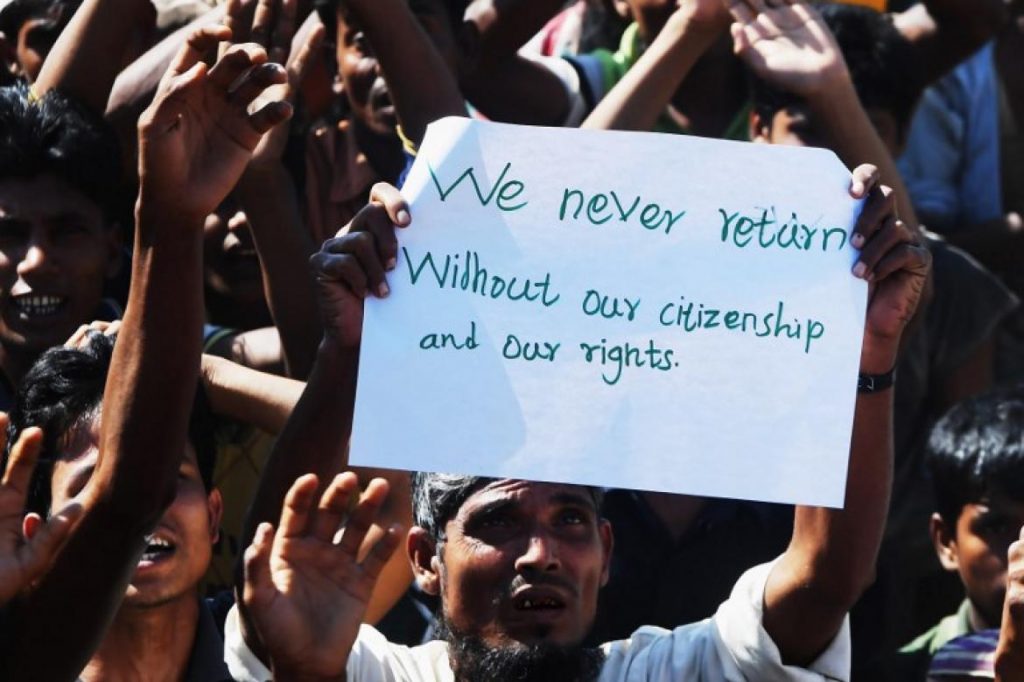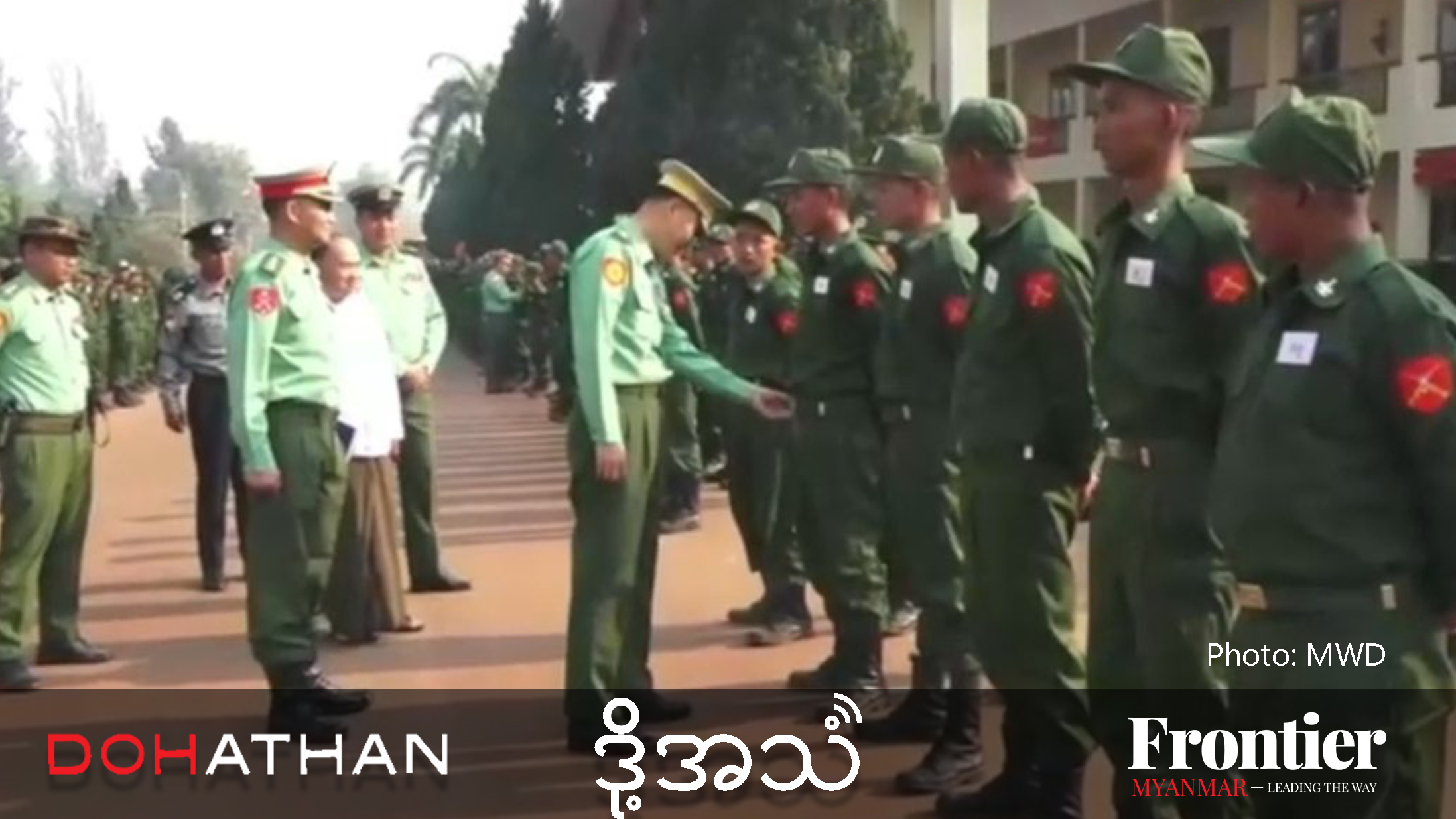By AFP
COX’S BAZAR — Frightened and angry Rohingya refugees on Thursday forced Bangladesh to call off efforts to start sending back some of the hundreds of thousands of the stateless Muslims to Myanmar, casting fresh doubt on a disputed repatriation programme.
Hundreds staged a demonstration near the Myanmar border shouting “we will not go” on the day the first batch were due to be sent back.
More than 720,000 Rohingya fled Myanmar’s Rakhine State into Bangladesh after a military crackdown in August 2017 that the UN has said calls for a genocide investigation.
Many brought horrific tales of murder, rape and razed villages and vowed never to return.
Support more independent journalism like this. Sign up to be a Frontier member.
Not one of the first 150 Rohingya meant to cross back Thursday under an accord with Myanmar turned up nor wanted to return, acknowledged Bangladesh authorities, under pressure from the United Nations and aid groups.
Community leaders said many on a Bangladesh repatriation list of 2,260 people had gone into hiding.
Bangladesh’s refugee commissioner went to a border transit point for the scheduled handover. But no Rohingya were present to be put on a bus across the river that marks the frontier.
At a special camp near the transit point, five buses were waiting to carry volunteers to the border.
About 1,000 Rohingya men, women and children took part in the demonstration against repatriations, shouting “we want justice”.
Tajul Mulluk, 85, who is on the repatriation list, said: “They killed two of my sons. I escaped to Bangladesh with two others. Please don’t send us back. They will kill the rest of my family. I am too old to flee the camp.”
Social problems
The United Nations had urged Bangladesh to suspend the programme, with rights chief Michelle Bachelet saying it would be like “throwing them back to the cycle of human rights violations that this community has been suffering for decades.”
Bangladesh government refugee commissioner Mr Mohammad Abul Kalam said his team was “completely ready” to start sending back people but stressed that the Rohingya had to be volunteers.
“If we get anyone willing to go, we will carry them to the border point with respect and dignity.”
Kalam said there would be no forced repatriation and acknowledged that the UNHCR refugee agency had found no family ready to go.
“None feels safe to go back now,” Kalam told AFP.
The mass influx of refugees joined about 300,000 Rohingya already in camps around the Bangladesh city of Cox’s Bazar having fled earlier violence.
It has left the poor South Asian nation struggling to cope with about one million Rohingya facing an uncertain future in the vast camps with huge social problems.
UN agencies say they have received only a fraction of the billion-plus US dollars needed to pay for their operations for the year.
Bangladesh and Myanmar agreed in October last year to start repatriations. But with Myanmar still refusing to acknowledge any wrongdoing in its treatment of the Rohingya, the operation has faced mounting opposition.
As deadline day loomed, community leaders said nearly all those on the repatriation list had fled to other camps and nearby hills.
UN High Commissioner for Human Rights Bachelet said many refugees were panicking at the prospect of being sent back against their will.
A confidential UNHCR document seen by AFP said the agency would only provide aid if returnees were allowed back to the villages they had left or to other locations chosen by them.
Human Rights Watch had also called on Bangladesh to “immediately halt” the planned repatriation.
“The Bangladesh government will be stunned to see how quickly international opinion turns against it if it starts sending unwilling Rohingya refugees back into harm’s way in Myanmar,” said Mr Bill Frelick, HRW refugee rights director.







